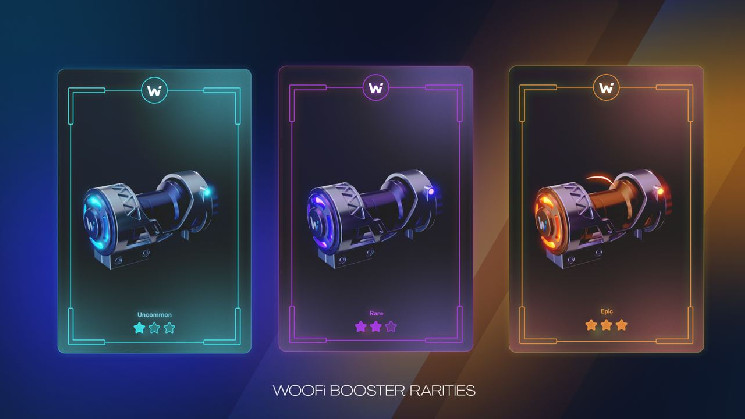Taking a cue from role-playing games, yield generation Boosters can be acquired by performing challenges such as cross-chain swaps, depositing into earn vaults or trading on WOOFi Pro.
The GameFi sector used inflationary emissions of a native token to generate earnings, whereas WOOFi distributes revenue based on a share of fees on the platform.
WOOFi, a decentralized cryptocurrency exchange (DEX) and sister to crypto exchange WOOX, is applying novel elements from the world of role-playing games (RPG) world to decentralized finance (DeFi), using non-fungible tokens (NFTs) to boost yields generated by customers staking tokens on the platform.
So-called “Boosters” – something like a magic power potion or weapon in a role-playing game (RPG) – can be acquired by performing challenges such as cross-chain swaps, depositing into earn vaults or trading on WOOFi Pro and then used to enhance the yield from WOO tokens, which are staked to earn a share of the DEX’s fees.
The world of DeFi, a hotbed of innovation several years ago, could probably use some fresh ideas. The WOO ecosystem, which is also known for pushing things like index-linked meme coin perps on the centralized WOOX platform, is appealing to an audience familiar with gaming and exploring the concept of utility NFTs, which have a function beyond being merely collectible.
Within the GameFi vertical, the likes of DeFi Kingdoms have been working along similar lines. But prior experimentation within the sector was largely by inflationary emissions of some native token or other, whereas “the WOOFi Boosters release is tied to value accrual generated by actions on the protocol,” said Ben Yorke, VP of WOO Ecosystem.
“Over the last year, we've distributed around $5 million in USDC to people who are staking on our protocol,” Yorke said in an interview. “These new boosters will dictate how much of this future revenue share is distributed, so it's actually tied to some real value.”
 coindesk.com
coindesk.com
